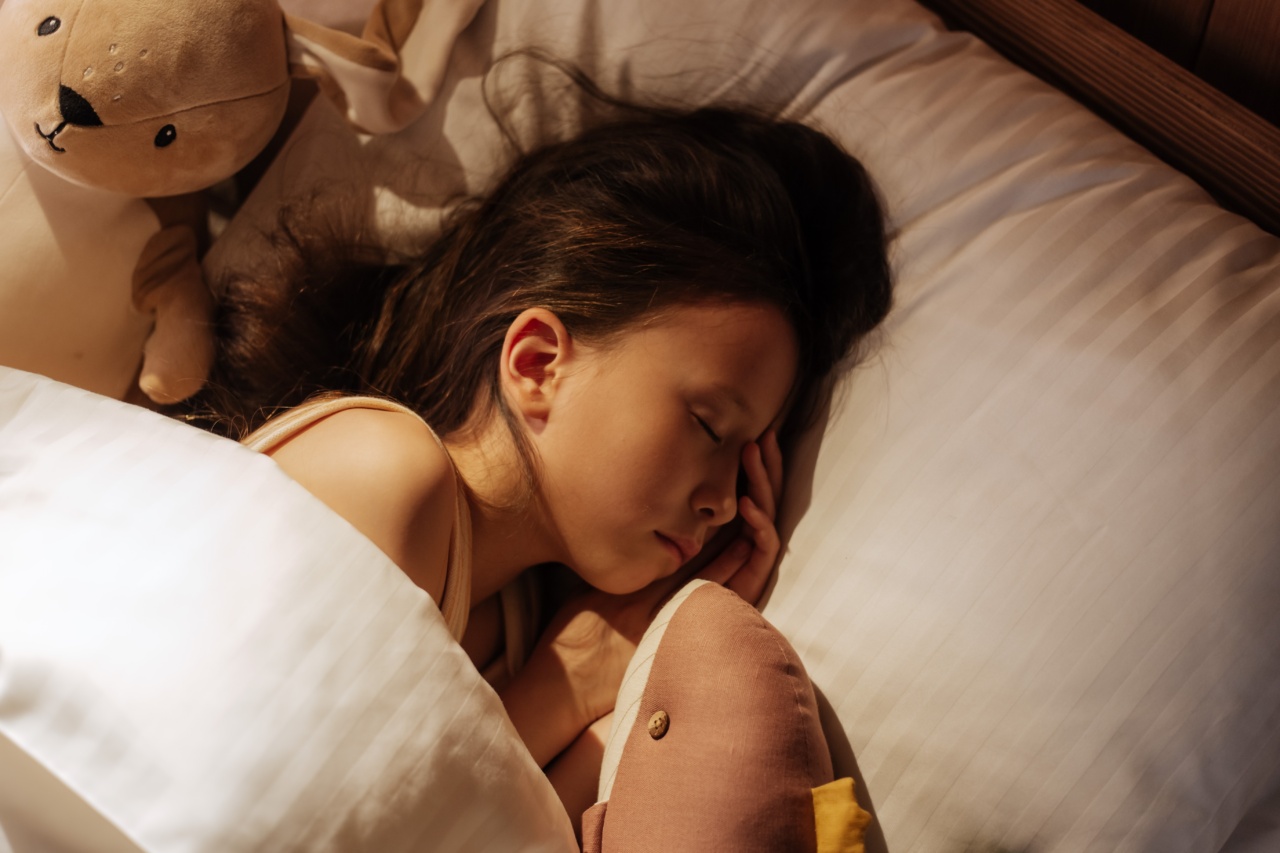Sleep is crucial for the healthy development and functioning of children. It is during sleep that their bodies and brains grow, repair, and consolidate memories.
However, many children today are facing a sleep crisis, with sleep deprivation becoming increasingly common. This lack of quality sleep can have a significant impact on a child’s behavior and psycho-social well-being.
In this article, we will explore the link between decreased sleep and changes in children’s behavior, and discuss the importance of promoting healthy sleep habits.
The Importance of Sleep for Children
Sleep plays a vital role in children’s overall health and development. Adequate sleep is necessary for the growth and repair of their bodies and is essential for cognitive functioning, learning, and memory consolidation.
It also plays a critical role in emotional regulation and the development of social skills.
Younger children require more sleep, with newborns needing up to 17 hours of sleep per day, while preschoolers need around 10-13 hours.
School-aged children, including teenagers, still require a significant amount of sleep, typically ranging from 9-11 hours.
The Effects of Sleep Deprivation in Children
When children do not get enough sleep on a regular basis, it can result in a wide range of behavioral changes and difficulties. These changes may include:.
1. Emotional Instability: Sleep-deprived children often experience frequent mood swings, irritability, and increased emotional sensitivity.
They may become easily overwhelmed by even minor stressors and have difficulties regulating their emotions.
2. Impaired Cognitive Function: Lack of sleep can negatively impact a child’s cognitive functioning. They may have difficulty paying attention, focusing, and problem-solving.
This can result in academic difficulties and poor school performance.
3. Hyperactivity and Impulsivity: Children who do not get enough sleep often display hyperactive and impulsive behaviors. They may have trouble sitting still, act without thinking, and have difficulties following instructions.
4. Poor Decision-Making: Sleep-deprived children may exhibit poor judgment and decision-making skills. They may take unnecessary risks and struggle to think through the consequences of their actions.
5. Increased Aggression: Sleep deprivation can lead to an increase in aggressive behaviors. Children may become easily frustrated, have frequent outbursts of anger, and have difficulty controlling their impulses.
6. Social and Relationship Difficulties: Poor sleep can also impact a child’s social interactions and relationships.
They may have trouble interpreting social cues, struggle with empathy, and face challenges in forming and maintaining friendships.
The Role of Technology in Sleep Deprivation
One major factor contributing to the decreased sleep duration in children is the widespread use of technology, such as smartphones, tablets, and computers.
The blue light emitted by these devices can disrupt the production of the sleep hormone melatonin, making it harder for children to fall asleep and stay asleep.
Moreover, excessive screen time not only leads to delayed bedtimes but also exposes children to stimulating and engaging content, making it difficult for them to wind down and relax before sleep.
The continuous use of technology also affects the quality of sleep, reducing the amount of deep, restorative sleep children receive.
Establishing Healthy Sleep Habits
Parents and caregivers play a crucial role in promoting healthy sleep habits for children. Here are some strategies to help children get the sleep they need:.
1. Consistent Bedtime Routine: Establish a regular bedtime routine that includes calming activities, such as reading a book or taking a warm bath, to signal to the child’s body and mind that it’s time to sleep.
2. Create a Sleep-Friendly Environment: Ensure that your child’s sleep environment is conducive to quality sleep. This includes a quiet, dark, and cool room with a comfortable mattress and pillow.
3. Limit Screen Time: Set limits on your child’s screen time, especially before bedtime. Encourage activities that promote relaxation, such as reading or listening to calming music.
4. Consistent Sleep Schedule: Establish a consistent sleep schedule, with regular bedtimes and wake-up times, even on weekends. This helps regulate the child’s internal sleep-wake cycle.
5. Encourage Physical Activity: Regular exercise and physical activity during the day can promote better sleep at night.
However, ensure that your child completes physical activity at least a few hours before bedtime, as exercising too close to bedtime can negatively impact sleep quality.
When to Seek Professional Help
If your child continues to experience persistent sleep difficulties or significant behavioral changes despite implementing healthy sleep habits, it may be necessary to seek professional help.
A healthcare provider or pediatric sleep specialist can assess and address any underlying sleep disorders or other conditions contributing to the sleep disruption.
Conclusion
Sleep is a fundamental component of a child’s health and well-being. Insufficient sleep can lead to a wide range of behavioral changes, affecting emotional stability, cognitive function, decision-making abilities, and social interactions.
By promoting healthy sleep habits and minimizing the use of technology, parents and caregivers can help improve their children’s sleep quality and overall behavior. Prioritizing sufficient sleep is crucial for setting children up for success in their physical, emotional, and cognitive development.




























